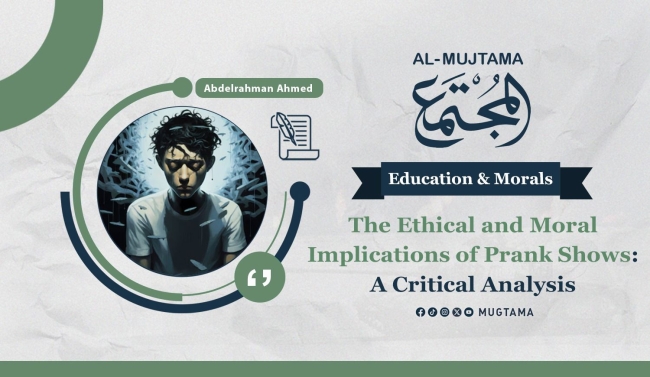The Ethical and Moral Implications of Prank Shows: A Critical Analysis
In today's media landscape, prank shows have become increasingly popular, captivating audiences with their humorous and often shocking antics. However, behind the laughter lies a complex web of ethical and moral considerations that warrant closer examination. This essay delves into the ethical dilemmas posed by prank shows, particularly within the context of religious and cultural sensitivities, and explores their potential impact on society.
Prank shows, characterized by their use of hidden cameras and staged scenarios to elicit reactions from unsuspecting participants, have proliferated in recent years. From harmless pranks to more elaborate and potentially harmful stunts, these shows often blur the line between entertainment and exploitation. While they may garner high ratings and lucrative sponsorships, they raise fundamental questions about the boundaries of humor and the ethical responsibilities of content creators. Allah Almighty says: “O you who have believed, let not a people ridicule [another] people; perhaps they may be better than them; nor let women ridicule [other] women; perhaps they may be better than them. And do not insult one another and do not call each other by [offensive] nicknames. Wretched is the name of disobedience after [one's] faith. And whoever does not repent - then it is those who are the wrongdoers.”
One of the most pressing concerns surrounding prank shows is the issue of consent. In many cases, participants are unaware that they are being filmed or manipulated for the amusement of viewers. This lack of informed consent raises serious ethical red flags, as it violates individuals' rights to privacy and autonomy. Moreover, the emotional distress caused by these pranks can have lasting repercussions, potentially damaging relationships and eroding trust.
Within the framework of religious and cultural norms, prank shows can also be problematic. During sacred times such as the holy month of Ramadan for Muslims, the airing of prank shows that mock religious values or traditions can be deeply offensive. Such shows not only disrespect the sanctity of religious observance but also contribute to a culture of insensitivity and intolerance. In a multicultural society, it is essential to foster mutual respect and understanding, rather than perpetuate stereotypes or belittle others' beliefs.
Furthermore, prank shows often perpetuate harmful stereotypes and reinforce negative social behaviors. By glamorizing bullying, ridicule, and humiliation, these shows normalize toxic attitudes and encourage viewers to emulate similar conduct. This is particularly concerning when the target audience includes impressionable children and adolescents who may internalize these messages and replicate them in their own interactions.
From a psychological perspective, the impact of prank shows on both participants and viewers merits consideration. The deliberate manipulation of emotions for entertainment purposes can have profound psychological effects, ranging from anxiety and embarrassment to trauma and distress. Moreover, the desensitization to violence and cruelty perpetuated by prank shows may desensitize viewers and contribute to a culture of apathy and indifference. Allah Almighty says: “And [recall] when We took the covenant from the Children of Israel, [enjoining upon them], "Do not worship except Allah; and to parents do good and to relatives, orphans, and the needy. And speak to people good [words] and establish prayer and give zakah." Then you turned away, except a few of you, and you were refusing.”
In light of these ethical and moral concerns, it is incumbent upon media producers to exercise greater discretion and responsibility in the creation and dissemination of content. While humor has its place in entertainment, it should not come at the expense of human dignity or societal harmony. Content creators must prioritize empathy, respect, and sensitivity in their portrayal of others, particularly marginalized groups or vulnerable individuals.
Alternatives to prank shows that uphold ethical standards and promote positive values are readily available. From uplifting comedies to thought-provoking dramas, there is no shortage of creative content that entertains while enriching the human experience. By investing in quality storytelling and diverse representation, media producers can cultivate a more inclusive and empathetic media landscape.
Moreover, regulatory bodies and industry organizations play a crucial role in holding media producers accountable for ethical lapses and promoting responsible media practices. By establishing clear guidelines and standards of conduct, these entities can help safeguard against the proliferation of harmful content and ensure that entertainment remains a force for good in society.
In conclusion, prank shows raise significant ethical and moral questions that warrant serious consideration. From issues of consent and cultural sensitivity to the psychological impact on participants and viewers, the implications of these shows are far-reaching. By fostering a culture of ethical responsibility and promoting empathy and respect, media producers can contribute to a more compassionate and inclusive media environment. Ultimately, entertainment should uplift and inspire, rather than demean and degrade.
Source: Shaima Ahmed | Al-Mugtama


